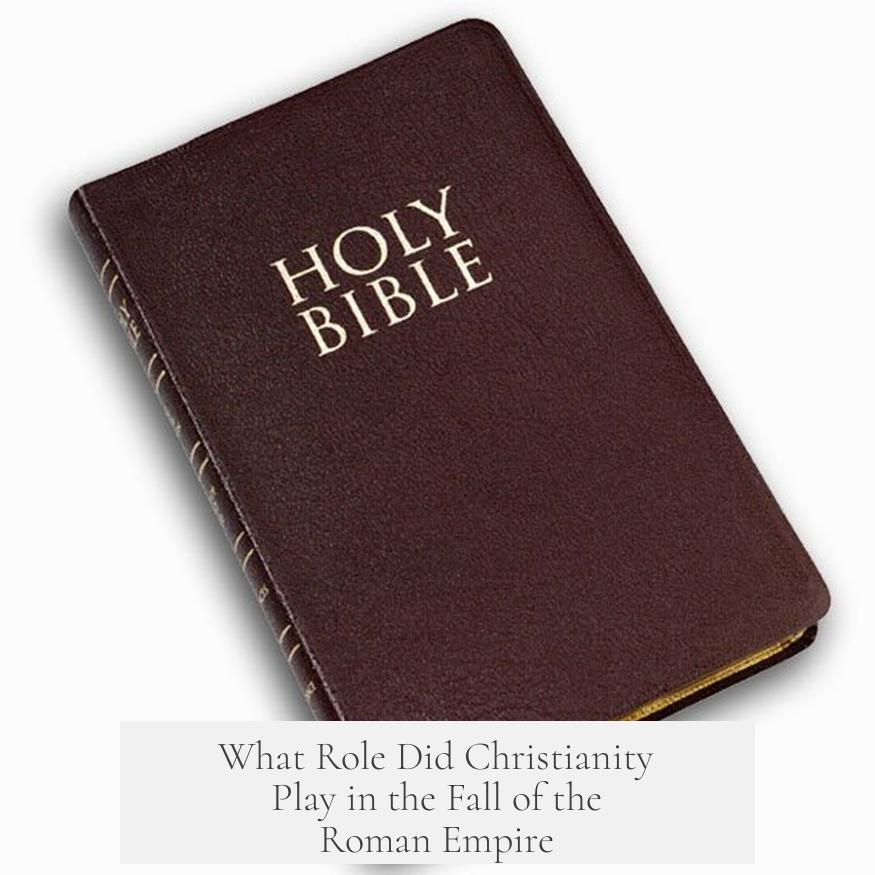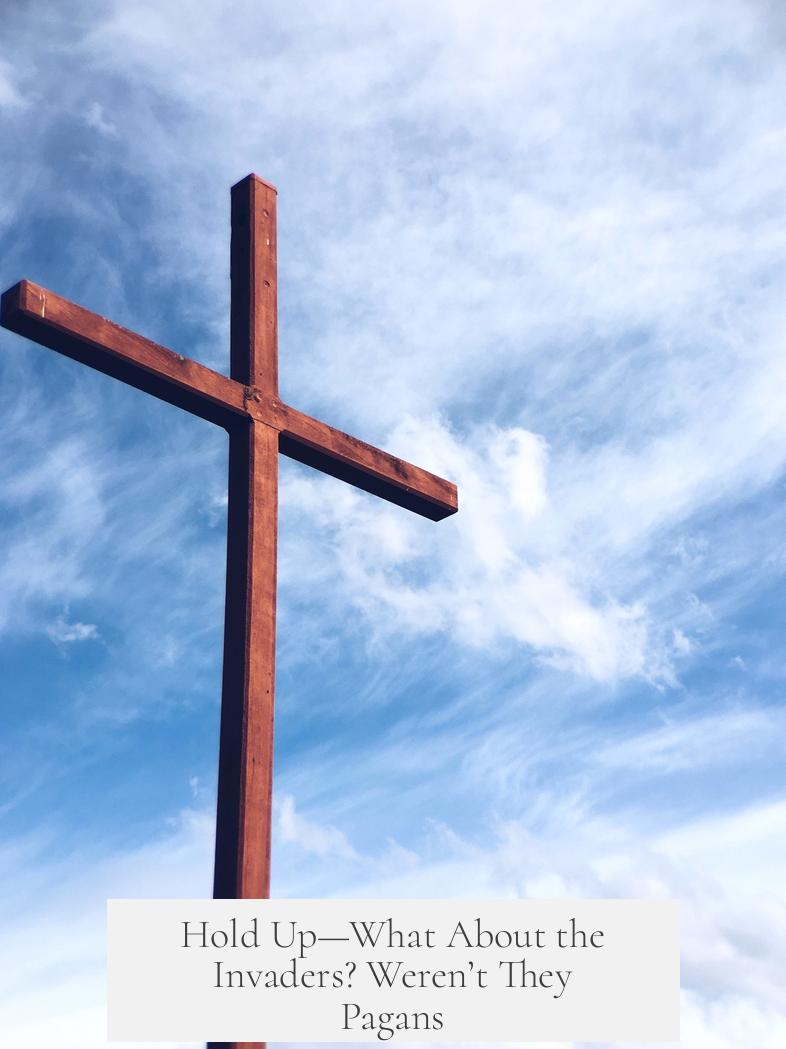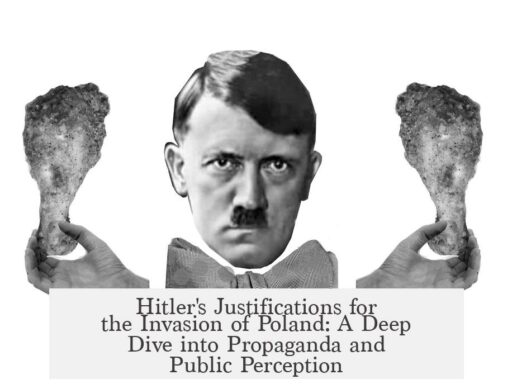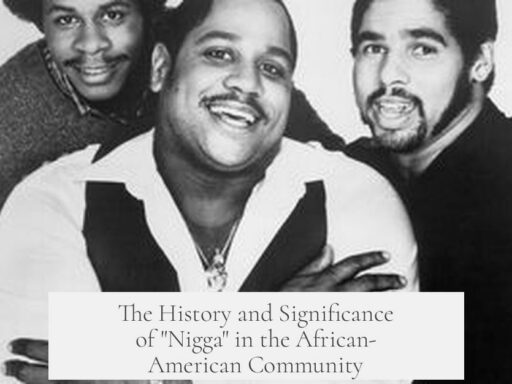Christianity did not play a decisive or direct role in the fall of the Roman Empire. While Edward Gibbon famously argued that Christianity contributed to Rome’s decline, modern scholarship largely rejects this view. The transformation of Rome was complex and gradual. Christianity’s impact, if any, was one factor among many rather than a primary cause.
Edward Gibbon’s 18th-century work, Decline and Fall of the Roman Empire, popularized the theory that Christianity weakened Rome. He suggested that the empire’s embrace of Christianity eroded traditional Roman values and civic duty. Gibbon’s theory drew partly from St. Augustine’s City of God, written after the sack of Rome in 410 CE, which argued that abandoning Roman pagan gods might explain the disaster.
However, modern historians rarely include Christianity as a main cause of Rome’s collapse. Recent books and scholarly papers often mention the theory only to refute it. The argument is seen as overly simplistic (“too pat”) compared to more nuanced explanations.
One important counterpoint is that many of the invading groups who contributed to the Western Roman Empire’s fall were themselves Christian. With the exception of possibly the Franks, the invading tribes adopted or already practiced Christianity. This weakens the notion that Christianity divided or disabled Rome internally in comparison to external threats.
More significantly, Rome’s fall was a lengthy, complex process stretching over centuries. The empire did not abruptly collapse but gradually transformed through political, economic, and social shifts. The term “fall” can be misleading because Rome’s structure evolved quietly, losing its earlier form rather than ending suddenly.
- Edward Gibbon popularized the theory that Christianity caused Rome’s fall.
- St. Augustine’s City of God influenced early Christian explanations of Rome’s decline.
- Most modern historians do not consider Christianity a primary cause.
- Invading tribes were often Christian, undermining the theory of religious conflict weakening Rome.
- Rome’s transition was gradual, involving complex changes over several centuries.
What Role Did Christianity Play in the Fall of the Roman Empire?

Did Christianity cause the fall of the Roman Empire? In short, no, not really. This idea, while colorful and dramatic, owes much of its fame to the 18th-century historian Edward Gibbon. His magnum opus, The Decline and Fall of the Roman Empire, gave life to the popular theory that Christianity was a prime culprit in Rome’s decline. But what does modern scholarship say? And how does this fit into the bigger, messy picture of Rome’s transformation? Let’s unravel this story.
First, a shout-out to Edward Gibbon. His work is legendary and still widely read. Gibbon argued, with flair, that Christianity shifted the Roman mindset. For him, the rise of Christian piety undermined traditional Roman virtues like civic duty and military courage. The empire, in his telling, weakened because its citizens now focused on an afterlife rather than defending the here and now.
That’s a clear, catchy narrative. But was it the whole truth? Not quite.
Where Did Gibbon’s Theory Come From?
Gibbon was not pulling this out of thin air. He drew inspiration, consciously or not, from the early Christian philosopher St. Augustine. Around 410 A.D., Rome was sacked by the Visigoths—a huge shock. Many pagans claimed this happened because Rome abandoned its old gods. St. Augustine’s famous work City of God was a response to these accusations. Instead of blaming the sack on abandoning paganism, he argued that Rome’s problems were part of a divine plan, with Christians ultimately destined for a heavenly city.
Gibbon built on this narrative but flipped it. Where Augustine saw Christianity as a salvation, Gibbon saw it as a poison. The theory gained traction because it neatly explained a complicated event in a straightforward way.
Modern View: Christianity’s Role Is Overrated
Fast forward to today, and historians mostly shake their heads at Gibbon’s thesis. Why? Because it’s too tidy and doesn’t hold up to scrutiny.
Recent books and papers on the Roman Empire’s fall rarely even mention Christianity as a cause—unless they do so to argue against it. Most experts now view the empire’s decline as a complex, slow-motion process—not a sudden collapse sparked by religious change.
The empire didn’t fall overnight or because people switched from worshipping Jupiter to Jesus. Instead, it morphed over centuries. Administrative changes, economic troubles, military setbacks, and external pressures all played large roles. Labeling Christianity as the villain is like blaming the fall of a house on the new paint job—overly simplistic and ignoring the bigger problems.
Hold Up—What About the Invaders? Weren’t They Pagans?

Another wrinkle: the so-called “barbarian” tribes who invaded and carved up the Western Roman Empire were largely Christian themselves. The Visigoths, Vandals, Ostrogoths, and others had embraced versions of Christianity—though often Arian Christianity, differing somewhat from Roman orthodoxy.
This is important because it complicates the argument that pagan Rome fell to Christian invaders or vice versa. Both sides shared the Christian faith in some form. The transformation wasn’t religious versus pagan; it was political and military struggle against rising new powers.
Rome’s End Was More of a Whisper Than a Bang
Another common misconception is that Rome “fell” dramatically. Modern historians prefer to talk about a gradual transformation. The “fall” extended over centuries, involving reshaping, decentralizing, and eventually the transition into what we now call the medieval world.
The city of Rome even continued as a center of faith and power, especially with the rise of the Christian Church as a major player in European politics. Rather than a catastrophic collapse, it was a transformation where Christianity became part of the new order.
What Can We Learn From This?
- Don’t buy simple explanations for big historical events. The Roman Empire’s end is a case study in complexity.
- Look deeper than popular theories. Gibbon’s work, while brilliant, belongs to its time.
- Consider all factors. Religion, military invasions, economic shifts, and political struggles all weave together.
- Remember: Christianity helped shape, not smash, the empire. It was part of Rome’s evolution into medieval Europe.
“Rome did not fall in a day; it changed in many ways over many years.”
In Summary
Christianity did not cause the fall of the Roman Empire, but it did play a role in its transformation. Edward Gibbon’s influential theory popularized the idea that Christianity weakened Rome. However, this theory doesn’t hold up well to modern research.
The “fall” was a slow and complex process. Most of the invading groups were Christian too, wiping the idea of a simple religious clash off the table. Christianity became embedded in the empire’s continuing legacy rather than destroying it.
So next time someone claims that Christianity toppled Rome, you can smile knowingly. The truth is richer and far more fascinating.




